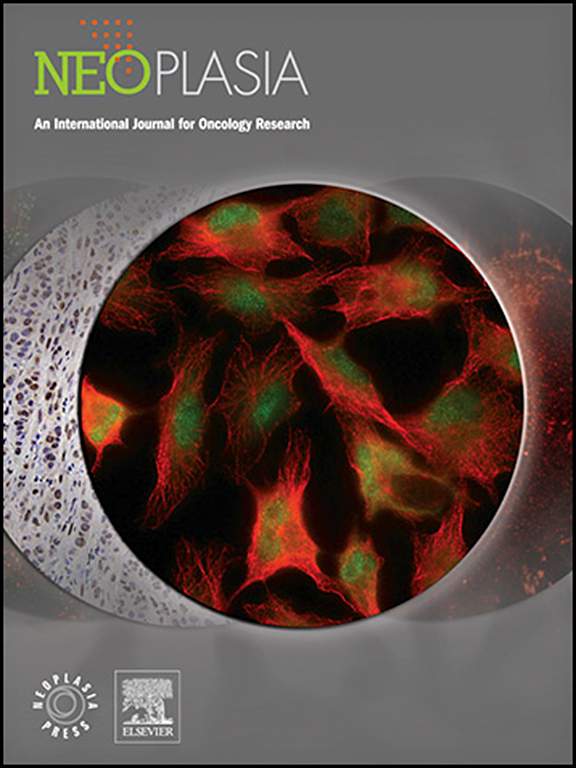免疫骨髓微环境对肿瘤生长和骨解构的贡献:改善骨转移免疫治疗策略的意义
IF 7.7
2区 医学
Q1 Biochemistry, Genetics and Molecular Biology
引用次数: 0
摘要
骨转移是许多实体瘤的常见并发症,导致疼痛的骨骼疾病和晚期癌症患者的死亡率增加。一旦进入骨骼,癌细胞就会改变骨形成(成骨细胞)和骨吸收(破骨细胞)细胞的功能,从而导致骨骼破坏。除了骨细胞外,骨髓中的癌细胞还与其他细胞群相互作用,包括免疫细胞,免疫细胞也在骨稳态调节中起着不可或缺的作用。在这方面,免疫检查点抑制剂(ICIs)已成为治疗晚期癌症患者的免疫治疗标准。然而,引人注目的是,那些骨转移的癌症患者在接受ICIs治疗时的生存期比接受ICIs治疗的没有骨转移的癌症患者短。在这篇综述中,在介绍了参与骨转移的免疫细胞后,我们回顾了评估骨和骨外转移的ICI疗效的临床前和临床研究结果,并讨论了使用骨靶向药物(包括denosumab和双膦酸盐)来提高癌症和骨转移患者ICI治疗的抗肿瘤疗效的临床应用。本文章由计算机程序翻译,如有差异,请以英文原文为准。
Contribution of the immune bone marrow microenvironment to tumor growth and bone deconstruction: implications for improving immunotherapeutic strategies in bone metastasis
Bone metastases are frequent complications of many solid tumors, leading to painful skeletal morbidities and increasing mortality for patients with advanced cancer. Once in bone, cancer cells deregulate bone homeostasis, altering the functions of bone-forming (osteoblasts) and bone-resorbing (osteoclasts) cells, which results in skeletal deconstruction. Aside from bone cells, cancer cells in the bone marrow interact with other cell populations, including immune cells that also play an integral part in the regulation of bone homeostasis. In this respect, immune checkpoint inhibitors (ICIs) have become a standard of care in immunotherapy for the treatment of patients with advanced cancer. Strikingly, however, those with bone metastases have a shorter survival when treated with ICIs than ICI-treated cancer patients without bone metastases. In this Review, after presenting the immune cells involved in bone metastasis, we review preclinical and clinical findings assessing ICI efficacy both in bone and extraosseous metastases, and we discuss the clinical utility of using bone-targeted agents —including denosumab and bisphosphonates— to improve anti-tumoral efficacy of ICI treatments in patients with cancer and bone metastases.
求助全文
通过发布文献求助,成功后即可免费获取论文全文。
去求助
来源期刊

Neoplasia
医学-肿瘤学
CiteScore
9.20
自引率
2.10%
发文量
82
审稿时长
26 days
期刊介绍:
Neoplasia publishes the results of novel investigations in all areas of oncology research. The title Neoplasia was chosen to convey the journal’s breadth, which encompasses the traditional disciplines of cancer research as well as emerging fields and interdisciplinary investigations. Neoplasia is interested in studies describing new molecular and genetic findings relating to the neoplastic phenotype and in laboratory and clinical studies demonstrating creative applications of advances in the basic sciences to risk assessment, prognostic indications, detection, diagnosis, and treatment. In addition to regular Research Reports, Neoplasia also publishes Reviews and Meeting Reports. Neoplasia is committed to ensuring a thorough, fair, and rapid review and publication schedule to further its mission of serving both the scientific and clinical communities by disseminating important data and ideas in cancer research.
 求助内容:
求助内容: 应助结果提醒方式:
应助结果提醒方式:


